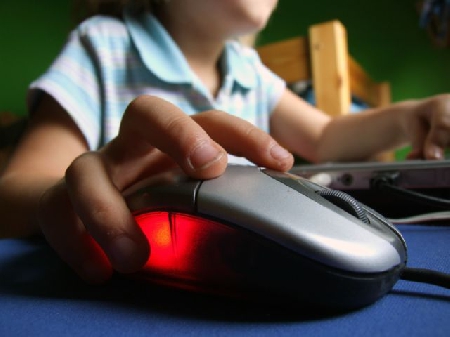The Dangers of the Internet
The Internet is now an integrating part of young people and childrens universe, but also a possibly dangerous place, especially for children.

România Internațional, 20.03.2013, 13:27
The Internet is now an integrating part of young people and children’s universe. Small children are capable of using various devices to access the Internet, with or without their parents’ supervision. The Internet allows them to find out all sorts of information, use educational programmes and communicate faster. However, specialists say the Internet is also a very dangerous place, especially for children, who are not yet capable of distinguishing reality from the fiction they are faced with on-line.
A study conducted by the Save the Children organisation has revealed that an increasing number of children are surfing the Internet using a whole range of devices, which also translates into a higher number of dangerous behaviours in the cyber space. Here is Gabriela Alexandrescu, the executive president of Save the Children Romania:
“In Romania, most children access the internet daily or almost every day. 65% of these children use mobile devices, which makes it difficult for parents to monitor their online activities. Children are exposed to many threats, considering that 90% of them say they use at least one social network, and 21% keep their profiles public. The information and education programmes run in schools have been efficient, in the sense that the number of users who make their social network profiles public has dropped, though not dramatically. Children have started to learn that certain type of information should not be public. Still, in Romania 43% of the children say they have seen images of a sexual nature in the past year. 70% of them point to the Internet as the source of such imagery.”
The average age at which children start using the Internet is 9, as compared to 10 in 2012. The number of mobile devices, whether phones or tablets, has also increased, from 17% in 2010 to 65% in 2012, as their prices have become more accessible. According to the survey compiled by the Save the Children organisation, when it comes to teenagers, who are in a difficult and confusing stage in their lives, the Internet does more harm than good. They prefer to stay on the Internet instead of studying, practicing sports or spending time outdoors.
Half of the children who participated in the study said they had unpleasant interaction while online, while half said they met in person with people they first came to know on the internet. After such meetings with unknown people, 10% of the children said they had been offended. So, the access to mobile devices and the fast development of social networks raise new problems, as Liliana Preoteasa, the general director of the Education and Life-Long Training Directorate with the Romanian Education Ministry has told us:
“The websites that student access during classes can be controlled in schools, and there are ways to do that. At home, there are also ways for parents to control their children. However, it’s becoming extremely difficult to supervise children who access the Internet via their mobile phones.”
Unfortunately, education about the Internet is almost inexistent in Romania. 79% of parents allow their children to use the Internet with no restrictions whatsoever. Many of them are not aware of their children’s negative experiences online, while others don’t know themselves much about computers and Internet, so they are unable to monitor what their children are doing on the Internet.
Save the Children organisation and the Education Ministry have suggested the introduction of a school guide containing both theoretical information and practical applications, to promote the safe use of the Internet by children. Also, Save the Children specialists provide counselling for both children and adults interested in finding out more about the Internet and how to be safe while online.
Following the publication of the study, the head of the Romanian police office for fighting cyber-crime Virgil Spiridon said cyber-crime in Romania has not reached an alarming level, but that the global trend is upward. Bank fraud, the unauthorised access to confidential corporate or government data, blackmailing and cyber bullying are all taking place on the Internet now, and they tend to spread at a fast pace. Virgil Spiridon:
“In statistical terms, last year there were over 1,000 cyber-crime cases in Romania. 200 of them, which involved 1,200 different offences and 542 people, were solved, in the sense that they went to court. As regards children’s safety on the Internet, the school and the family are the key factors.”
Gheorghe Serban, with the Professional Association of Electronic Services Providers explains what the Internet is all about these days:
“Today there are some 7 billion devices that are interconnected via the Internet. Overall Internet traffic will grow three times by 2015, while Internet traffic using mobile devices will 11 times. So, there will be some 15 billion devices connected to the Internet in 2015.”
As to whether the Internet is good or bad, specialists say this depends very much on the individual user.






























